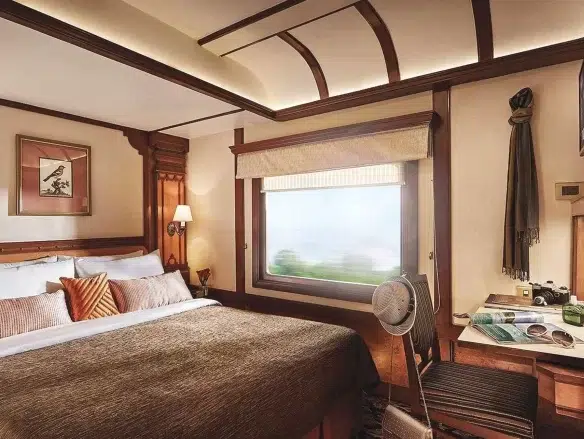Why Experimental Travel Is The New Trend In Tourism




Travel has always been a means of exploring new places, cultures, and experiences. For years, people have followed the same tourist routes and travel itineraries that are designed to show them the most popular tourist spots. However, recently, a new trend has emerged in the travel industry – experimental travel. It’s a type of travel that focuses on experiences that are unique, immersive, and personalized. From trying new foods to staying in unusual accommodation, experimental travel is a way to break out of the traditional tourist mold and truly explore the world around us.
A few years ago, I embarked on a trip to Japan. I had read about the country’s unique culture and was excited to experience it for myself. However, instead of following a pre-planned itinerary, I decided to take an experimental approach to my travel. I explored the country’s small villages, tried local delicacies, stayed in traditional Ryokans, and even participated in a Japanese tea ceremony. These experiences were not only eye-opening but also helped me gain a deeper understanding of the Japanese culture. The experience was a game-changer for me, and it sparked my interest in experimental travel. Since then, I have come across many others who have adopted this approach to travel, and I have noticed that it’s becoming increasingly popular among travelers of all ages and backgrounds. According to a study conducted by Booking.com, 67% of travelers would rather stay in unique accommodations than in traditional hotels. In addition, 76% of respondents stated that they would like to try new experiences when traveling.
Another study conducted by Airbnb revealed that in 2019, 40% of their bookings were for unique accommodations such as treehouses, yurts, and tiny homes. This trend has been growing rapidly, with a 94% increase in bookings for these types of accommodations since 2014.
Experimental travel is a new approach to tourism that focuses on personalized, unique, and immersive experiences. It’s a way to break out of the traditional tourist mold and truly explore a destination’s culture, people, and lifestyle. Experimental travel can include everything from trying new foods to staying in unusual accommodations and participating in local activities.
Traditional tourism is focused on visiting the most popular tourist spots, staying in standard, accommodations, and participating in group tours. It’s a pre-planned approach that aims to show travelers the highlights of a destination in a short period. On the other hand, experimental travel is a personalized approach that focuses on discovering the lesser-known parts of a destination. It aims to give travelers a deeper understanding of a place’s culture and lifestyle.
There are several reasons why experimental travel is becoming more popular among travelers. Firstly, travelers are becoming more adventurous and seeking out unique experiences that will help them connect with a destination. Secondly, social media has played a significant role in promoting experimental travel. Travelers can now easily find and share information about off-beat destinations, unique accommodations, and activities, which can inspire others to follow in their footsteps. Finally, the rise of the sharing economy has made it easier to find and book unique accommodations and experiences.
There are several benefits to taking an experimental approach to travel. Firstly, it can lead to a more authentic and meaningful travel experience. By stepping outside of the traditional tourist mold and exploring a destination’s lesser-known areas, travelers can gain a deeper understanding of the local culture and lifestyle.
Secondly, experimental travel can also be a more sustainable way to travel. By staying in local homes or eco-friendly accommodations, travelers can reduce their carbon footprint and support the local economy. In addition, by participating in local activities, travelers can help support local businesses and communities.
Finally, experimental travel can also be a way to challenge yourself and step out of your comfort zone.
By trying new foods, staying in unusual accommodations, or participating in local activities, travelers can gain new perspectives and broaden their horizon.
Planning an experimental trip can be both exciting and challenging. Here are some tips to help you get started:
a) Research: Research the destination and find out about its unique culture, history, and lifestyle. Look for off-beat activities, unusual accommodations, and local experiences that you would like to try.
b) Budget: Set a budget for your trip, including the cost of accommodations, activities, and transportation. Keep in mind that unique accommodations and activities may be more expensive than traditional options.
c) Plan ahead: Some unique accommodations and activities may require booking in advance. Make sure to plan ahead to avoid disappointment.
d) Connect with locals: Reach out to locals through social media or travel forums to learn more about the destination and its culture. They may be able to provide valuable insights and recommendations.
e) Be flexible: Remember that experimental travel is all about being open to new experiences and stepping outside of your comfort zone. Be flexible and open to unexpected opportunities that may arise during your trip.
While experimental travel can be rewarding, it can also come with its challenges. Some unique accommodations may be more rustic or basic than traditional options, and some local experiences may be out of your comfort zone. In addition, experimental travel may require more planning and research than traditional tourism.
Another challenge is the potential language barrier. It may be difficult to communicate with locals, especially in more remote areas where English is not widely spoken. However, this can also be an opportunity to learn a new language or engage in non-verbal communication.
Finally, experimental travel may also be less predictable than traditional tourism. Unexpected weather, transportation delays, or other unforeseen events may disrupt your plans. However, with an open mind and a flexible attitude, these challenges can be turned into opportunities for adventure and growth.
Experimental travel is a new trend in tourism that focuses on personalized, unique, and immersive experiences. It offers travelers a chance to break out of the traditional tourist mold and truly explore a destination’s culture, people, and lifestyle. While it may come with its challenges, the benefits of experimental travel are many, including more authentic and meaningful travel experiences, sustainability, and personal growth. So, the next time you plan a trip, consider taking an experimental approach and see where it takes you.

“You don’t start out writing good stuff. You start out writing crap and thinking it’s good stuff, and then gradually you get better at it.
That’s why I say one of the most valuable traits is persistence.” SIBCA AWAN







